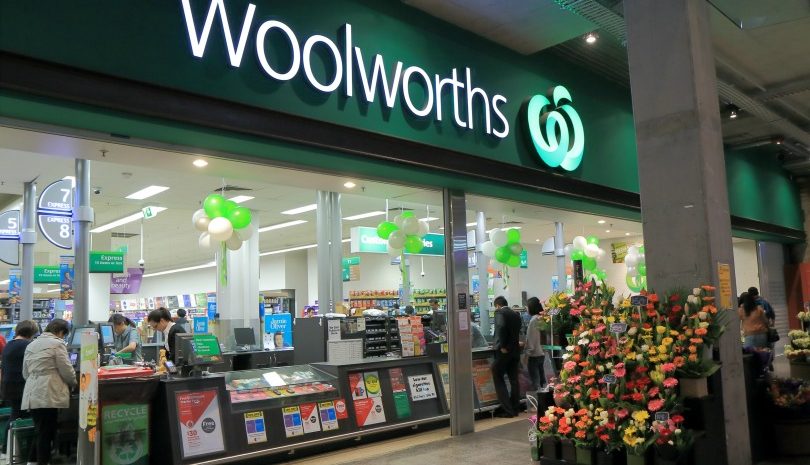Woolies expands on-demand delivery service

Online food and grocery market is estimated to be worth $3.1 billion in Australia, growing at a rate of 12.5 per cent annually. While impressive, this figure only represents about 3 per cent of total supermarket sales. A key barrier to the penetration of online food and grocery shopping in Australia is time and distance.
After successful trials in Sydney and Melbourne, Woolworths on Tuesday announced the further rollout of its innovative ‘on-demand’ grocery delivery service, ‘Woolworths Delivery Now’, in partnership with Yello.
The service will allow over 300,000 Brisbane shoppers access to grocery deliveries in under two hours, seven days a week, from six local supermarkets for a delivery fee of $19. It is further claimed deliveries in Sydney and Melbourne are averaging around 70 minutes.
Shoppers will be able to select up to 30 handpicked items from a range of more than 12,000 products.
Drivers of change
A recent survey conducted by the Australian Bureau of Statistics found that Australians are feeling more time-poor than ever, with 45 per cent of women and 36 per cent of men feeling “always” or “often” rushed, or “pressed for time”. Research has also identified that almost a quarter of shoppers are willing to pay a premium for same day delivery. Something supermarkets will leverage in order to get these type of schemes up and running in a commercially viable way.
Consumers’ expectations are changing. Speed is becoming a point of difference, a new front of competition, between retailers. But many Australian retailers are lagging behind.
When a quarter of customers are willing to pay a bit extra to have their online purchases delivered that afternoon, it is surprising that more retailers are not investing in the “last-mile” – from the warehouse or store to the customer.
Supermarkets turn a threat into an opportunity
The advantage physical supermarkets always had over online was immediacy. Walk in, grab it and go. While online shopping had an endless range of choice and often lower prices, shoppers had to wait. But “same day” and “two hour” delivery undermines that, combining the convenience of online shopping with the immediacy of bricks n’ mortar.
New retailers and logistics companies are selling us time and convenience just as much as they are selling products or services. Take ‘Urb-it’ for example, the delivery provider operating in Sweden, Paris and London, uses sustainable delivery solutions that include walking, biking or using public transport to hand-deliver items to customers.
Many supermarkets in the US and UK have teamed up with third party providers like Lyft and Uber to achieve a same-day delivery. British supermarket Sainsbury’s has recently begun trialing an app that allows shoppers to order up to 20 products and have them delivered in an hour.
Here in Australia, innovate firms like Passel and Yello are removing the ‘pain points’ between buying your groceries and having them delivered; and supermarkets are moving quickly to turn the threat of online into an opportunity for growth. Take Coles, which recently expanded its UberEats trial across Sydney stores.
Speed will level the playing field
Australian retailers may not be able to compete against the likes of Amazon on product range and price, but speed may level the playing field. In most cases today, Australian retailers are still pushing products to stores from distribution centres, unpacking them, only to have those same products re-picked, re-packaged and forwarded to a customer’s home. This is not cost effective or a long-term viable model to ship smaller, individual orders to customers’ homes.
What Australian supermarkets are now investing in is fulfilment centres. Coles recent announcement of their exclusive partnership with third party logistics provider Ocado to build fully automated fulfilment centres is a step in the right direction. Ocado will manage their online grocery operation, just as it does for grocers in Sweden, the US and Canada.
But it’s not just speed that can give an advantage. In the past, delivery was dominated by a few companies, but today there are a myriad of new players exploring a variety of new technologies such as algorithm and analytics-driven apps, drones, delivery robots and driverless vehicles to meet the demands of time poor consumers. Such technologies can arrange not only when a product is delivered, but how it arrives in a customer’s hands – with flexible locations and timing.
Customers’ expectations for flexible, fast and cheap same-day delivery is both a threat and an opportunity for Australia’s major supermarkets. It is currently unclear who will win this race, but supermarkets must wake up to the demands of customers. Their competitors already have.
Gary Mortimer is an associate professor in marketing and international business at Queensland University of Technology.
Woolworths Delivery Now extended to Ascot, Ashgrove, Bulimba, Camp Hill, Paddington and Spring Hill.
Comment Manually
You must be logged in to post a comment.

No comments